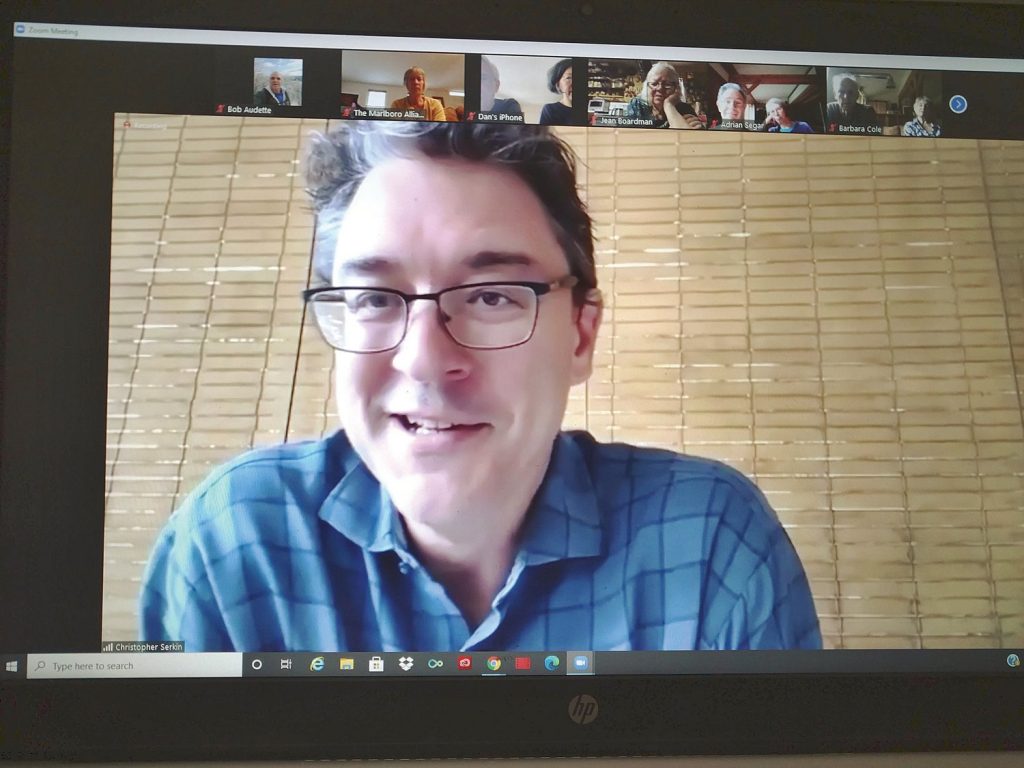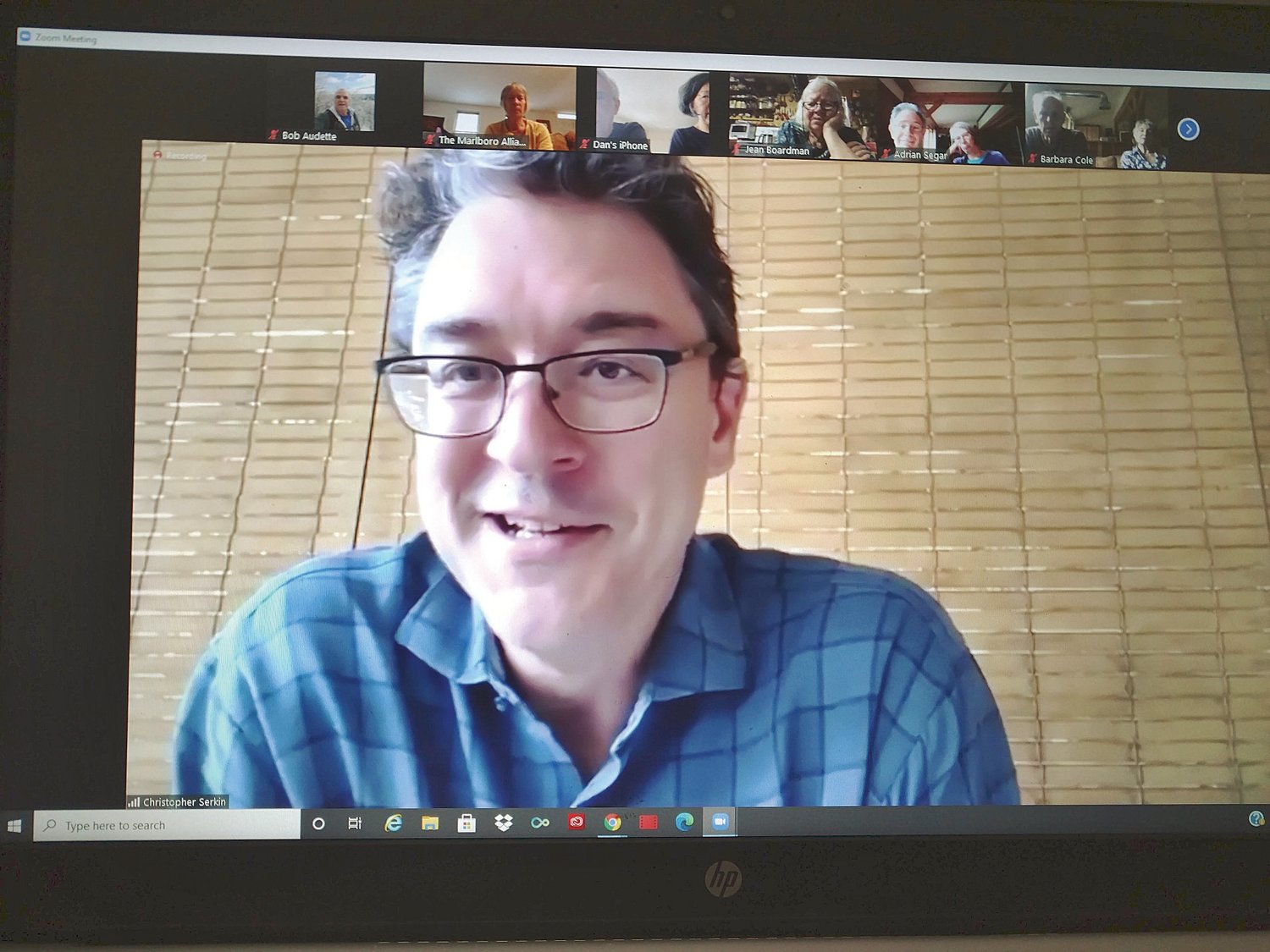Marlboro Music Festival ‘not going anywhere’ – Brattleboro Reformer
Marlboro Music Festival ‘not going anywhere’ Brattleboro Reformer


By Bob Audette, Brattleboro Reformer
MARLBORO — Even though this year’s Marlboro Music Festival has been canceled due to the COVID-19 pandemic, and even though the Marlboro College campus has been sold to Democracy Builders, Marlboro Music is not going anywhere, said Christopher Serkin, chairman of the Festival’s Board of Trustees, during a Zoom meeting hosted by the Marlboro Community Center.
“We still have approximately 97 years on a relatively new lease that we signed,” Serkin said. “Marlboro is our home.”
Serkin said the music festival has been working closely with Democracy Builders to make sure “nothing happens that interferes with our rights” to use the campus for the festival.
“We spent an enormous amount of time, energy and effort to navigate this process successfully,” Serkin said. “We have been laser-focused on making sure our rights are protected and we are able to continue our programs. This is our home and we are not going anywhere.”
While Marlboro Music is hoping for “an amicable relationship” with Democracy Builders, Serkin said, there are “strong protections in place [we are] ready and willing to enforce …” At the same time, he said, “We are not interested in being obstructionist or difficult.”
Serkin said Marlboro Music made an offer on similar economic terms to the one that was accepted from Democracy Builders, which was $225,000 for the campus and an assumption of $1.5 million debt owed to Marlboro Music.
Serkin said maintaining the campus would have added $1 million and $1.5 million to the festival’s $3.3 million annual budget, which could have jeopardized the festival’s survival, he said.
“Marlboro Music’s future is quite strong,” Serkin said. “But that’s because we manage our budget with incredible discipline.”
Serkin said the lease agreement signed with Marlboro College two years ago did not allow the festival to have a say in the sale of the campus to Democracy Builders. However, he said, the festival has a right of first refusal in the lease agreement that takes effect January. The agreement also gives the festival the power to take action if the campus is not utilized by its owner.
Article Continues After Advertisement
“We cannot compel, or force, a sale, except in one situation,” Serkin said after the meeting. “If the campus is unused for a certain amount of time, then we can force a sale. It is a purchase option at fair market value that kicks in if the campus is not being used as specified in the lease.”
He also said during the meeting that the physical layout of the campus can’t be changed “dramatically” without permission from the festival.
“We benefit as a national organization from having a strong successful landlord who respectfully manages the campus,” said Serkin, who added he was pleased to learn that Democracy Builders has retained many of the Marlboro College staffers who were responsible for upkeep of the campus.
As part of securing the 99-year lease, Marlboro Music invested “a truly staggering amount of money” on a new residence hall and rehearsal space, about $10 million, Serkin said. Even though the new buildings belong to the new landlord, Serkin said, the agreement inked with Marlboro College guarantees the festival’s use of the buildings and the campus in the summer, “If not in perpetuity, at least through the next century.”
Article Continues After These Ads
Serkin said he could not comment on allegations of racism and bullying at Democracy Prep charter schools, which Andrew also founded, because the festival was not privy to the negotiations between the college’s board and the bidders for the campus and was therefore unable to perform “due diligence” into the allegations.
Serkin also talked about how the pandemic has damaged the musical landscape, with many orchestras furloughing musicians.
“When all this shakes out, Marlboro and Marlboro Music are going to be more important than ever,” he said.
Serkin noted that the Marlboro Music Festival is “an unusual organization” that is neither a school nor a festival. He said is it an artist retreat that is insular by design, even though rehearsals and recitals are often open to the public. Coming to Marlboro is an opportunity for musicians to leave behind, even if for only a few weeks, the financial pressures they normally face.
“They’re not being asked to do anything but study intensively,” Serkin said.
Article Continues After Advertisement
The Music Festival is an opportunity for musicians young and old to collaborate and learn from one another, he said.
“Marlboro Music has no teachers and no students,” Serkin said. “Everyone is called a participant. This is a collaborative model.”
Senior staff are paid “a modest living stipend” to attend the festival, Serkin said, while junior musicians often have to make some sort of financial contribution to participate. But, Serkin said, the festival often receives donations to help junior musicians defray the cost of participation.
The Marlboro Music Festival was founded in 1951 by Serkin’s grandfather, Rudolf Serkin, Adolf and Herman Busch and Marcel, Blanche and Louis Moyse.
This intergenerational connection is the hallmark of Marlboro Music, Serkin said.
“We feel deeply committed to that hilltop because we’ve always been there,” he said.
Serkin assured the participants in the Zoom meeting that the festival has strong leadership in co-artistic directors Mitsuko Uchida and Jonathan Biss.
“Mitsuko spends more time in Marlboro than anywhere else in the world, including her home in London,” Serkin said. “She is on the road all the time. This is true for a lot of musicians. Marlboro is a kind of spiritual home.”
Bob Audette can be contacted at raudette@reformer.com.
If you’d like to leave a comment (or a tip or a question) about this story with the editors, please email us. We also welcome letters to the editor for publication; you can do that by filling out our letters form and submitting it to the newsroom.